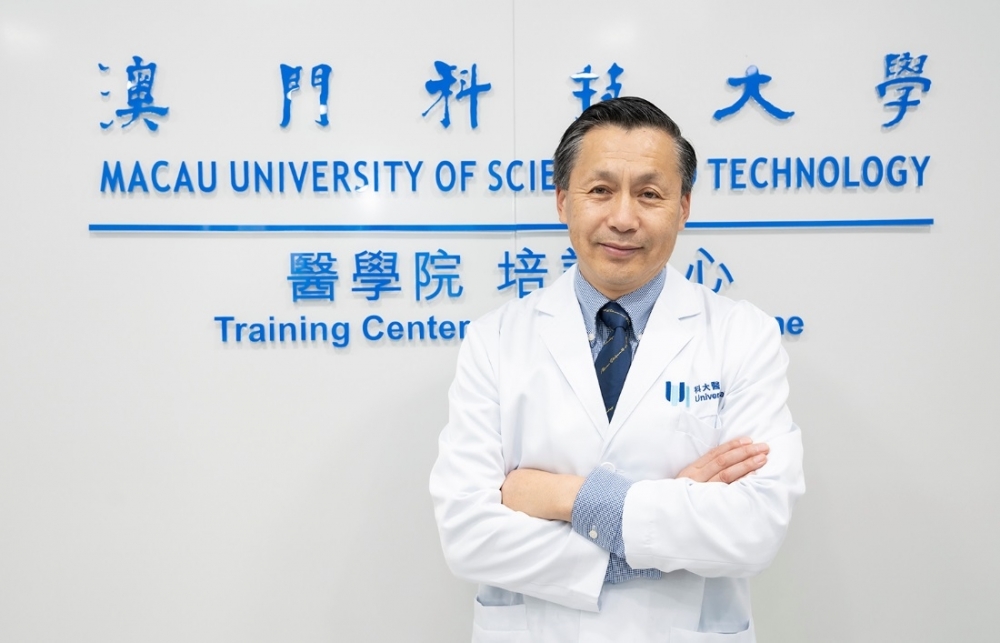
Professor Zhang Kang, Faculty of Medicine, Macau University of Science and Technology (MUST)
The scientific research team led by Professor Zhang Kang from the Faculty of Medicine of Macau University of Science and Technology (M.U.S.T.) has been working hard on the diagnosis and treatment of COVID-19 in collaboration with the Guangzhou Women and Children's Medical Center. Major findings from a study by the team, Characteristics of pediatric SARS-CoV-2 infection and potential evidence for persistent fecal viral shedding, have just been published in the top international biomedical journal Nature Medicine, and Pro. Zhang is a corresponding author in this study.
The outbreak of COVID-19 pneumonia in Wuhan engulfed many countries around the world. Most of the reports on the SARS-CoV-2 infection focused on adult cases. Compared with the total number of confirmed new corona virus pneumonia in adults, the confirmed cases of children are very limited, which makes it difficult to study and understand their epidemiological and clinical features. The diagnosis of children with SARS-CoV-2 pneumonia poses a challenge.
Dean Fok of the Faculty of Medicine, Macau University of Science and Technology (M.U.S.T.), said, “The team found that symptoms in children infected with COVID-19 are less severe than that in adults. They do not have the high fever that is common in adults. The clinical manifestations such as cough and fatigue, and obvious pneumonia, are largely absent in children. The lung X-rays and laboratory study also have less abnormal values. SARS-CoV-2 nucleic acid can be detected in gastrointestinal tract (fecal), and its positive duration is longer and amount higher than that in the respiratory track; hence the possibility of fecal-oral transmission is high. Therefore, rectal swab-testing may be more useful than oropharyngeal-swabs in diagnosis, evaluation of the effectiveness of treatment and determination of the timing of termination of quarantine. This result is not only a breakthrough in new knowledge of COVID-19, but also a significant contribution to the diagnosis and treatment of Children with COVID-19.” Professor Zhang Kang’s team is constantly working on several studies on COVID-19 in several interdisciplinary fields with more advances to be released shortly.
Dr. Zhang obtained his M.D. with Magna Cum Laude honors from Harvard Medical School and MIT joint MD program and his PhD in genetics from Harvard University. He completed his residency in ophthalmology at Johns Hopkins University and his retina surgery fellowship at University of Utah. His research covers a wide range of topics in genetics, epigenetics, stem cells, nano-engineering and 3D printing, clinical trials, and artificial intelligence. He has extensive clinical experience and scientific research achievement. He has won many awards, such as Burroughs Wellcome Clinical Scientist Award in Translational Research, Yangtze River Scholar at Peking University, the Ophthalmologist 100 Power list of 2016 and 2018, and 2010 American’s Top Ophthalmologists. His discovery that HTRA1 is a major susceptibility gene for age-related macular degeneration is listed as one of “top-ten breakthroughs in 2006” in Science Magazine. Dr. Zhang has published over 200 peer-reviewed manuscripts in top peer-reviewed journals, such as New England Journal of Medicine, Nature, Science, Cell, Nature Genetics, Nature Medicine, Cell Stem Cell, Molecular Cell, PNAS, JCI etc. He has more than 26,000 citations and an H Index of 70.
Access Nature Medicine link below for more details: https://www.nature.com/articles/s41591-020-0817-4.pdf
